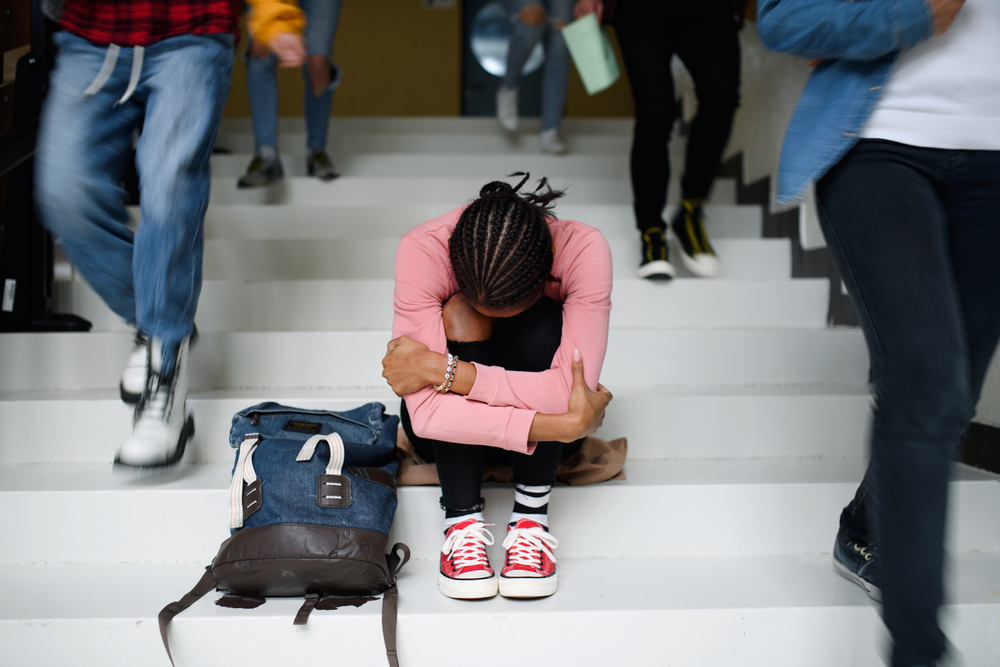What to Know About College Students & Mental Health Struggles
Mental HealthPosted:

College and university life offers memorable experiences that last a lifetime.
But with those memories come increased responsibilities, changes to routine, and time management struggles. It’s an exciting time of growth and discovery – but also one that requires major adjustments to lifestyle and workload.
These adjustments often lead to mental health struggles – currently the top health concern for young adults.
According to the American Psychiatric Association, 60 percent of college students experienced at least one mental health challenge in 2021, a 50 percent increase since 2013.
Dr. Ronald Smallwood, a board-certified psychiatrist with Lee Health Behavioral Health, says that anxiety disorders are the most common mental health disorder.
Living a healthy lifestyle by getting enough sleep, eating healthy, taking time to exercise, and doing things that have meaning for you are just some of the tips Dr. Smallwood recommends for students finding their way around the challenges of college.
What are students struggling with?
Students say they’re feeling extreme pressure to maintain schedules, get good grades, and find jobs. Adding more responsibilities such as cooking and cleaning, study demands, and homesickness can be overwhelming.
Dr. Smallwood says some of his college-aged patients struggle with anxiety about their current situation and their future, and they feel stressed out about what’s going on in today’s world with global conflicts and economic burdens.
Signs a student is struggling
Students may show different signs of struggling with stress, anxiety, or depression. Dr. Smallwood says the most important sign is noticing marked behavioral changes from how someone normally acts.
“Some behaviors may include stopping engaging in hobbies or passions, sleeping more to avoid the day or not sleeping at all, struggling at work or school, and an overall decrease in functioning,” Dr. Smallwood says.
Feeling anxious or stressed from time to time is a typical part of life and can actually be beneficial. However, students, friends, and parents need to be aware that trouble could be brewing when anxiousness begins to interfere with one’s ability to complete day-to-day responsibilities.
Lack of mental health professionals adds to mental health woes
Along with academic pressure and typical stressors caused by beginning and attending college, students are struggling because of a lack of counseling.
As the stigma of mental health issues lessens, more people are choosing to get help instead of struggling in silence, according to the American Psychological Association. But more people seeking mental health services has burdened a social service profession that’s often understaffed or overwhelmed.
Between 2009 and 2015, the number of college students getting help from campus counselors increased by 40 percent and is still rising, according to the American Psychological Association. As a result, many students are unable to see a counselor for help when they most need it, further adding to their struggles.
Tips for taking care of your mental health
Dr. Smallwood says learning how to cope with life’s challenges in healthy ways will help you, the people you care about, and those around you become more resilient.
He recommends taking time out of every day to get enough sleep, eat healthy, exercise, and do things that have meaning to you.
“Try to set limits on the amount of time you study and work,” Dr. Smallwood says. “And keep your course load manageable. Avoiding too much caffeine may help reduce anxiety if you’re prone to it.”
Most importantly, he advises to reach out to someone if things get worse.
You can help yourself and others manage stress in the following ways:
- Journaling: Write your thoughts to help make sense of them and notice patterns to correct them. Sometimes, just seeing the thought, acknowledging it, and letting go can help.
- Setting boundaries: You don’t have to be everything to everyone. Set time for yourself and create healthy boundaries with friends and family.
- Join a community: Indulge in a hobby and talk with like-minded people.
- Practice mindfulness: There are lots of resources to help center your mind so you can train yourself to live in the present moment. Take a look at your surroundings with yoga, exercise, and more. Take time to breathe.
- Find a creative outlet: Draw, dance, learn music, paint, write – channel your energies.
- Care for your body: It’s hard to do in college, but self-care is critical.
- Evaluate yourself: Check in with yourself when you can. How are you feeling? Notice the pattern and try to maintain perspective.
Source: Binghamton University
Lee Health resources
If you are struggling with mental health, it’s important to know the resources available to you. Dr. Smallwood shares the following resources and what they look like to help those struggling with mental health conditions:
- Medication management: You would see a psychiatrist and discuss potential medications.
- Individual therapy: You would meet with a licensed clinical social worker (LCSW), psychologist, or both.
- Group therapy: You and others with similar conditions such as anxiety, depression, and self-esteem groups.
- Case management: Assists you in applying for social services or home visits to help educate the patient.
How are you feeling?
If the answer is “overwhelmed with emotions” like sadness, depression, or anxiety, reach out to our experienced, compassionate professionals at Lee Health Behavioral Services at 239-343-9180. Or find resources on your campus.
As the importance and recognition of mental health increases, more teachers, counselors, and other advocates can help point the way even if mental health professionals aren’t always available. Talk to family and friends. Reach out.

